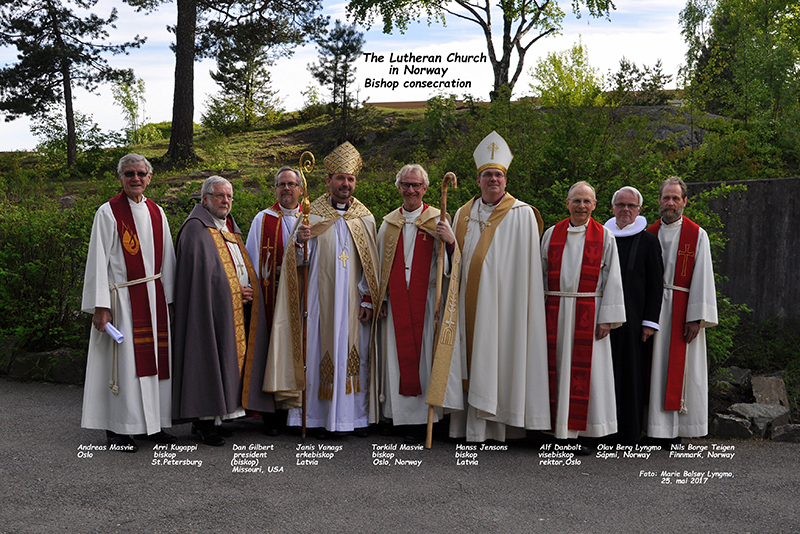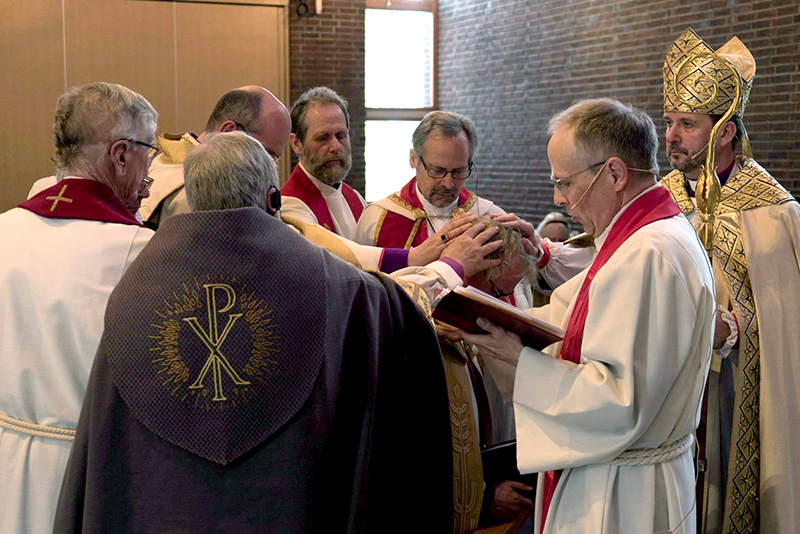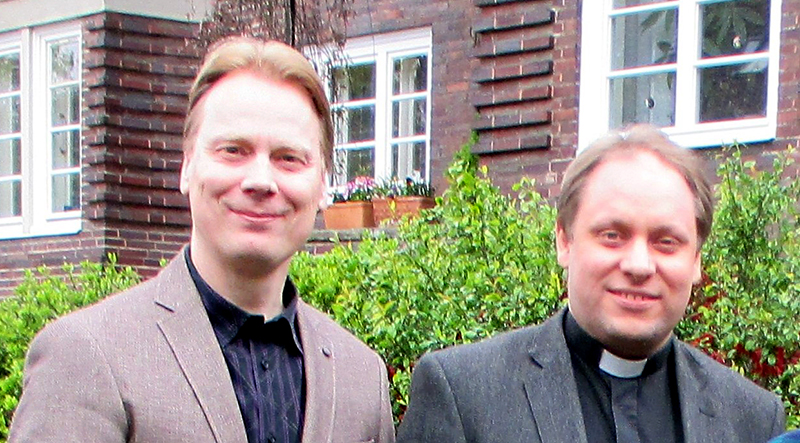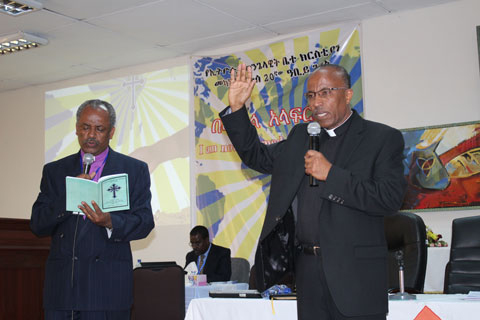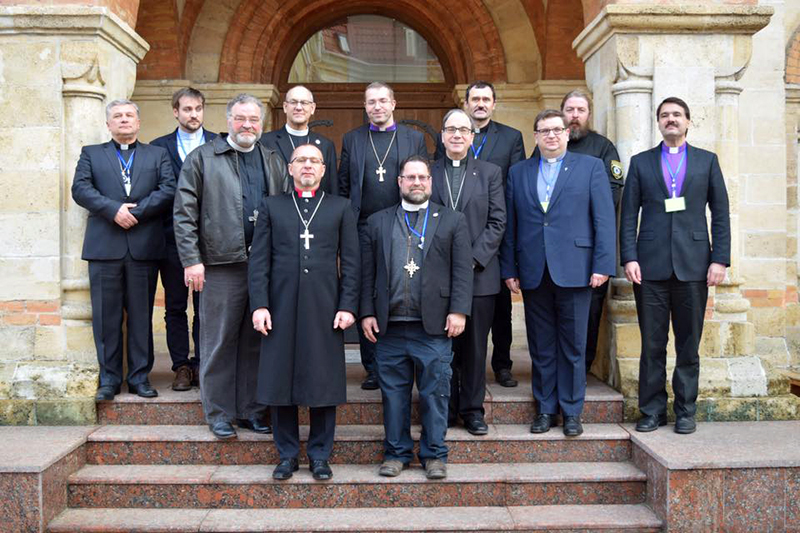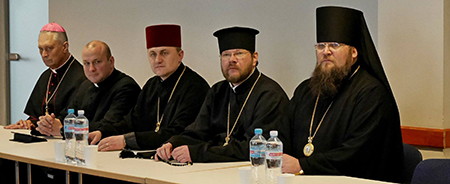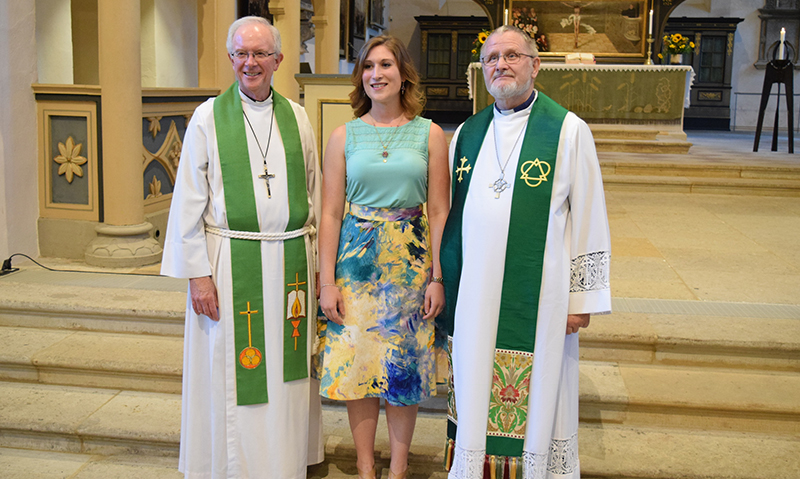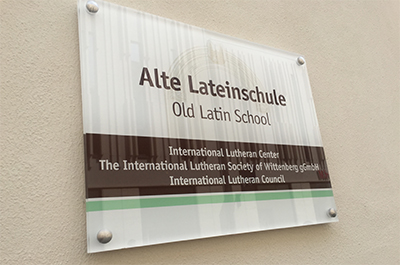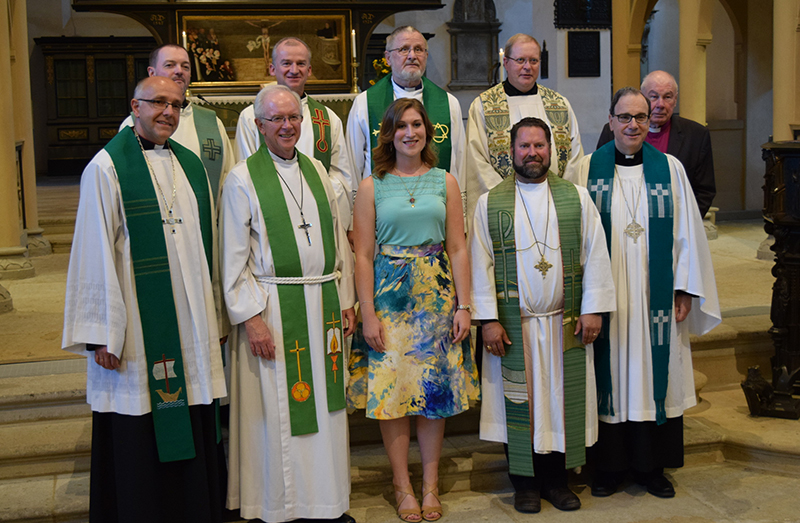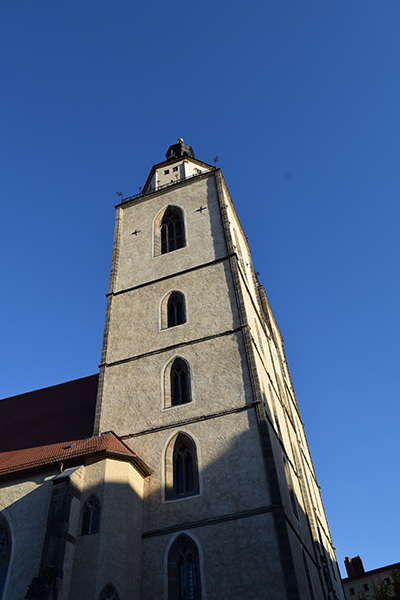NOTE: The Malagasy Lutheran Church (FLM) recently voted to pursue fellowship with The Lutheran Church—Missouri Synod (LCMS) during an assembly of the FLM’s Committee of the Highest Leaders. Rev. Dr. Al Collver (Executive Secretary of the International Lutheran Council and Director of Church Relations for the LCMS) was present for the event, and brought the following greetings.
——————–
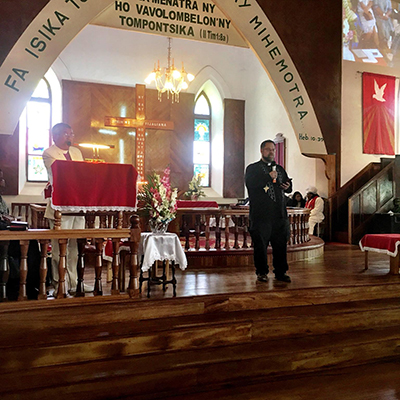
Rev. Dr. Al Collver brings greetings to the Malagasy Lutheran Church on behalf of The Lutheran Church—Missouri Synod.
Salama tompoko!
It is a great honor to be here with you today to celebrate your church’s jubilee. I bring you greetings in the name of Jesus, from President Matthew Harrison and from The Lutheran Church—Missouri Synod. Congratulations on 150 years as witnesses to the Gospel of Jesus Christ to Madagascar and to the entire world. The Lord has blessed you greatly. The Missouri Synod will celebrate its 175th birthday in 2022. In advance, I would like to invite you to celebrate our jubilee. Our churches are sisters separated by the ocean, but now is the time to reach out our hands to help one another.
Greetings to the Malagasy Lutheran Church in Jesus’ name and to President David Rakotonirina, who I had the honor of seeing a week ago at Concordia Theological Seminary in Fort Wayne, Indiana, where he received a Doctorate of Divinity. We also celebrate Rev. Denis Rakotozafy on receiving his PhD in Missiology. Theological education is important to both of our churches. In the future, we will be offering more scholarships to study and the opportunity to participate in the Lutheran Leadership Development Program. Such cooperation is an opportunity to learn from each other and to share experiences.
Our churches are sisters, in the same family, but separated while we were both young. Now, however, we have found each other as we celebrate important jubilees. We are confessional Lutherans who are faithful to the Bible with a strong Lutheran identity. The Missouri Synod and our partner churches around the world are eager to walk with the Malagasy Lutheran Church. We hope to come closer to you and partner together to bear witness to Jesus Christ throughout the world. We give thanks to the Lord for the Malagasy Lutheran Church and to President Rakotonirina for your friendship and desire to partner with us. As you will hear in a few moments, we in the Missouri Synod and in Europe and North America need you to be witnesses to us.
Let me share this Scripture verse and some brief words of greetings with you: “To everything there is a season, and a time to every purpose under the heaven” — Ecclesiastes 3:1
The Preacher says there is a season for everything. One hundred and fifty years ago, there was a season in Madagascar. It was a season when faithful missionaries from Norway travelled by ship to Madagascar to share the Gospel of Jesus Christ. The forgiveness of sins in the death and resurrection of Jesus Christ was preached, people were baptized in the name of the Triune Father, Son, and Holy Spirit, and the body and blood of Jesus were given to eat and to drink. Men were trained to be pastors. The Lutheran church in Madagascar grew and was blessed. Today, the Malagasy Lutheran Church (FLM is not only one of the largest Lutheran churches in Africa but in the entire world.
It is true that in the West there are a few Lutheran churches that boast more members than the Malagasy Lutheran Church. But the difference becomes clear when you count by people who come to worship. In Europe, many cathedrals and churches are almost entirely empty on Sunday morning. This increasingly is happening in North America too. But when you come to Madagascar, the churches are full. On my previous visit to Madagascar, the congregation I attended had Holy Communion for more than 7,500 people that Sunday. This is completely unknown in Europe and North America today.
The season has changed in world Lutheranism. Almost 500 years ago, Martin Luther almost said the Gospel is a passing rain shower. He wrote: “Let us remember our former misery, and the darkness in which we dwelt. Germany, I am sure, has never before heard so much of God’s word as it is hearing today; certainly we read nothing of it in history. If we let it just slip by without thanks and honor, I fear we shall suffer a still more dreadful darkness and plague. O my beloved Germans, buy while the market is at your door; gather in the harvest while there is sunshine and fair weather; make use of God’s grace and word while it is there! For you should know that God’s word and grace is like a passing shower of rain which does not return where it has once been… And you Germans need not think that you will have it forever, for ingratitude and contempt will not make it stay. Therefore, seize it and hold it fast, whoever can; for lazy hands are bound to have a lean year” (AE 45:352).
Unfortunately for the West—for Europe and North America—the Gospel of Jesus, specifically the preaching that sins are forgiven, has been like a passing rain shower. Instead of forgiveness of sins in Jesus, many preach human rights, same sex marriage (LBGT), and saving the environment instead of saving people with the Gospel of Jesus. In the West, the Bible is not preached as true and without error. Instead, the Bible is said to contain the Word of God, and is contextualized so that anything you wish to do or say is permitted. As a result, people no longer come to church. This is why the world needs the Malagasy Lutheran Church to remain faithful to the Bible and to proclaim Jesus.
The Malagasy Lutheran Church believes in Jesus Christ who died on the cross and rose again on the third day. You teach that the Bible is God’s holy Word. You teach the forgiveness of sin that is found in Jesus, in Baptism, and in the Lord’s body and blood. You have Luther’s Small Catechism. Your church has the Gospel of Jesus Christ. To paraphrase Martin Luther, it is raining in Madagascar like it once did in Europe and North America. Now is the season of growth of the church in Madagascar. Now is the season for evangelism. As it is written in the Book of Acts 1:12, “you shall receive power, after the Holy Spirit comes upon you. And you shall be my witnesses both in Jerusalem and to the distant parts of the earth.” You, the Malagasy Lutheran Church, are Jesus’ witnesses to the end of the earth—even to Europe and North America. You will send missionaries throughout Madagascar and to the farthest parts of the earth—even to Europe and North America. Come bring us the rain of the true Gospel of Jesus, which brings us the forgiveness of sins, life, and salvation.
One example of the Spirit of God at work is the Fifohazana, which is usually translated as “spiritual revival” in English. I would like you to understand something about my context. When an American Lutheran hears the word “revival,” he thinks of Baptist or Pentecostal worship. It doesn’t sound Lutheran to an American Lutheran. It is important that you understand this context. However, the Missouri Synod has learned and come to understand that Fifohazana is not a “revival” as understood in the American context. We understand that Fifohazana is instead a spiritual way of life. This reminds us of Martin Luther’s first these of the 95 Theses, “That the entire life of the Christian should be one of repentance.” It is a way of life. We respect your church and your ways. In fact. we have much to learn from you, including learning how to live a spiritual life filled with repentance.
I say it again: congratulations to the Malagasy Lutheran Church for 150 years of Jesus’ blessing and 150 years of bearing witness to Madagascar and to the world. Perhaps the most important time to bear witness is upon you now. The Lutheran Church—Missouri Synod, your slightly older sister, is happy to walk with you and to partner with you as witnesses to Jesus. Thank you for desiring to partner with us. We both walk together in the Scriptures. We can share with each other and both become stronger. Be witnesses to the world and send missionaries to Europe and North America. As missionaries came to you 150 years ago, you now will go out into the world for the next 150 years. Remain faithful in the Word of God. The Reformation lives on here in Madagascar. As the Preacher says, “To everything there is a season…” and now is the season for the Malagasy Lutheran Church. May Jesus richly bless you and bring about the season of our joint partnership. Thank you.
———————

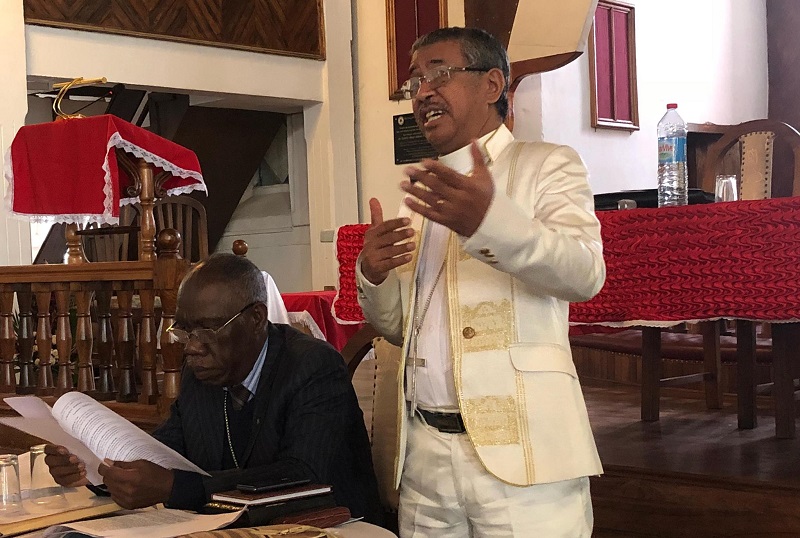
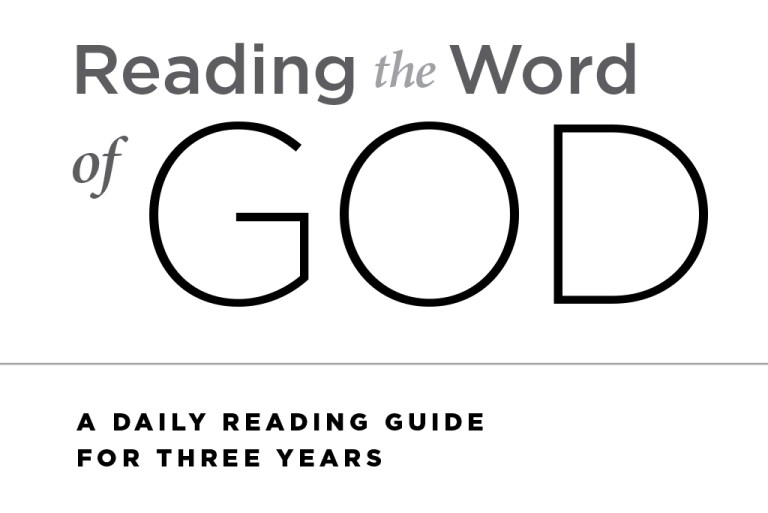
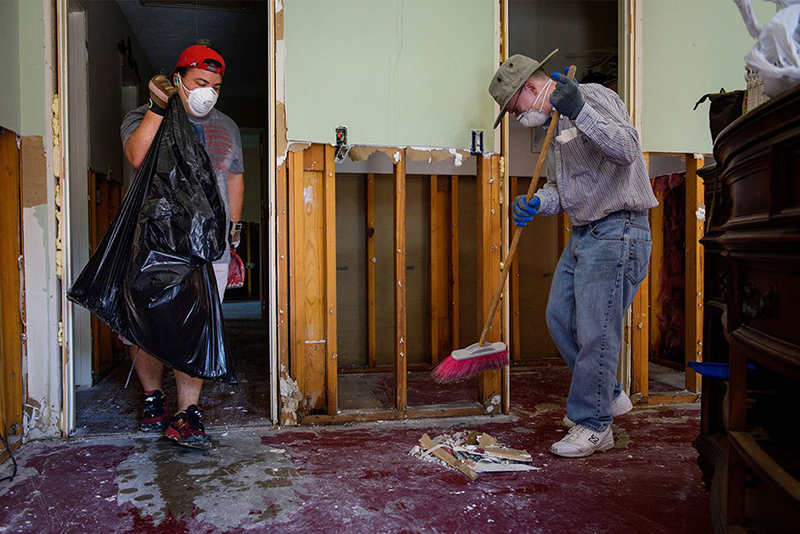
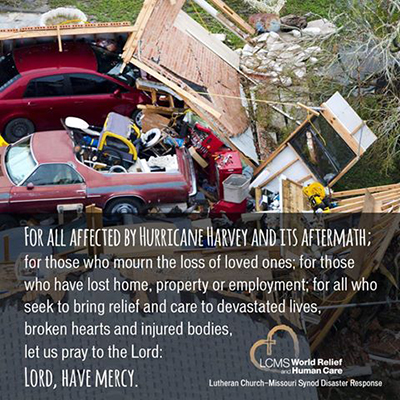 The national church’s World Relief and Human Care department has likewise been on the ground, determining the best opportunity for service. An LCMS assessment team led by the church’s Director for Disaster Response Ross Johnson
The national church’s World Relief and Human Care department has likewise been on the ground, determining the best opportunity for service. An LCMS assessment team led by the church’s Director for Disaster Response Ross Johnson 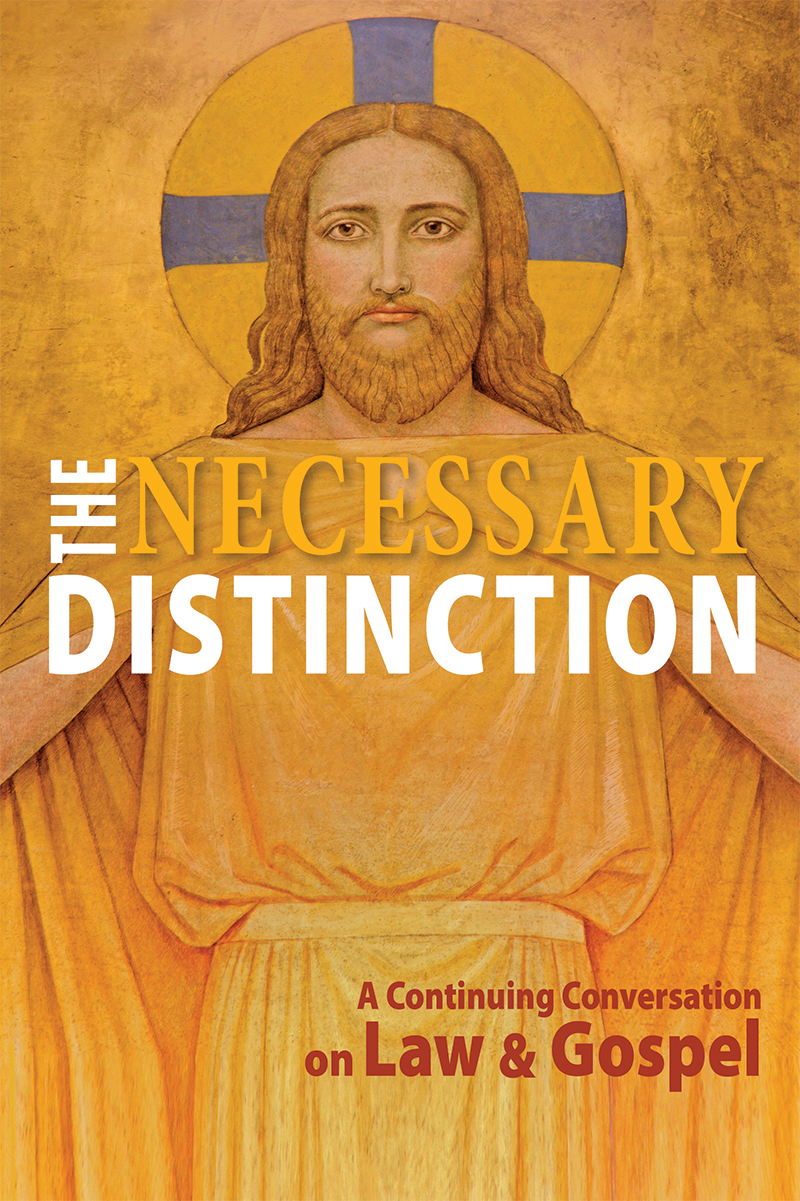 USA – When representatives of the North American Lutheran Church (NALC), The Lutheran Church—Missouri Synod (LCMS), and Lutheran Church–Canada (LCC) started meeting together more than five years ago, it was decided that the group would sponsor a book of essays on the proper distinction of God’s Law from His Gospel. That book will be
USA – When representatives of the North American Lutheran Church (NALC), The Lutheran Church—Missouri Synod (LCMS), and Lutheran Church–Canada (LCC) started meeting together more than five years ago, it was decided that the group would sponsor a book of essays on the proper distinction of God’s Law from His Gospel. That book will be 